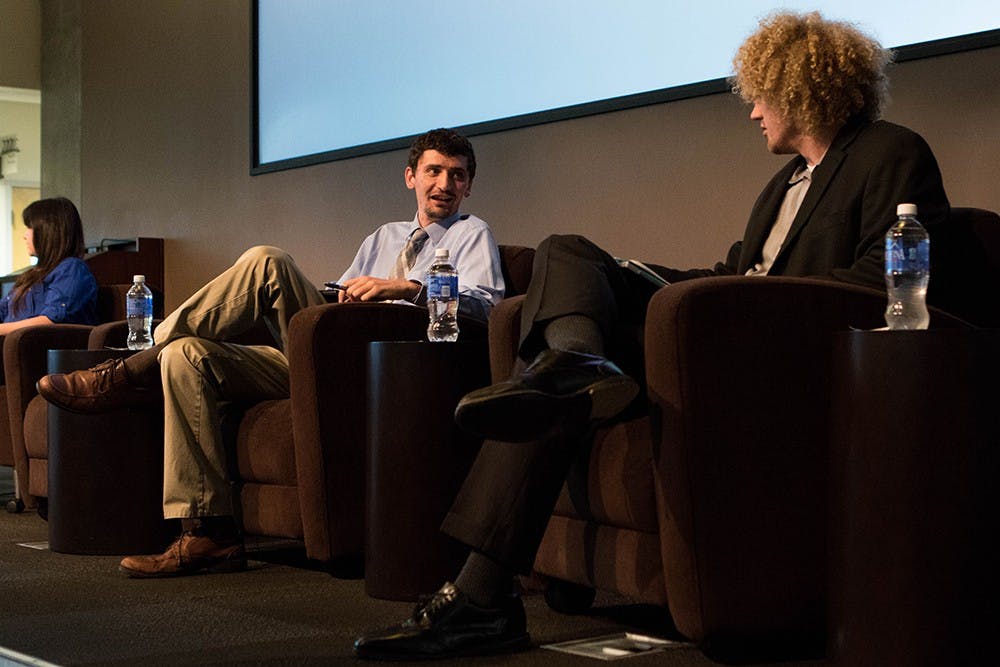Is college really worth it?
Undergraduate Student Government Downtown and Voice of the People Association Arizona At ASU hosted a panel Thursday to answer this question and discuss how to lower the costly barriers of higher education.
With constantly-increasing tuition prices, a nationwide average student loan debt of $35,000 and unequal opportunities leading to higher education, the ability to go to college can be severely altered for certain populations of people.
The discussion, a joint venture between the two organizations and The New York Times, centered around two of the publication's articles: "College for the Masses" by David Leonhardt and "Plan B: Skip College" by Jacques Steinberg, both of which discussed the value of a higher education.
Hosted by public policy sophomore Jimmy Arwood, President of Arizona Education Association Andrew Morrill and Casey Dreher, executive director of Voice of the People Association Arizona, the panel opened up discussion to the audience, offering various and differing viewpoints to many sensitive topics.
One of the points brought up by an audience member argued that there will always be greater barriers to education for certain populations more than others, to which Morrill mentioned that predicting educational success was just based off of simple calculations.
"Just as your insurance companies charge more for vehicle insurance under the age of 24 because the high probability of accidents happening disproportionately there, there's a metric used to capitalize on success," he said. "Unfortunately, or fortunately, it's a series of academic indicators, so they look at other indicators that will drive to success."
Dreher said students in Arizona trying to pursue a higher education have a major disadvantage to attend college, due to state officials actively trying to make education more expensive and less accessible.
"What we see now is a huge disconnect between legislators and students," he said. "Students from ASU, from UofA, from NAU go to the Capitol all the time to discuss higher education, and not just higher education but the costs associated with it. The response we get from legislators today is, 'So what?'"
Arwood, who is well-known around campus for holding a presence at controversial rallies and events such as an education funding rally against Arizona Gov. Doug Ducey's proposed budget cuts, said state legislators' arguments for less-privileged students to attend community college instead of a university puts students at a disadvantage on the job market.
"From what I've been reading, 63 percent of jobs by the year 2018 are going to require a Bachelor's Degree to get a job," he said. "Only supplying students with community college is not exactly a sustainable solution to this problem."
At the end of the day, Dreher said, although a higher education is not for everybody, it should be available to those who pursue it.
"Higher education really isn't for everybody, but it should be there and it should be accessible in quality for every single person who desires a higher education," he said. "It takes students in this room to be politically active and vote if a higher education is something you desire."
Reach the reporter at Jlsuerth@asu.edu or follow @SuerthJessica on Twitter.
Like The State Press on Facebook and follow @statepress on Twitte




